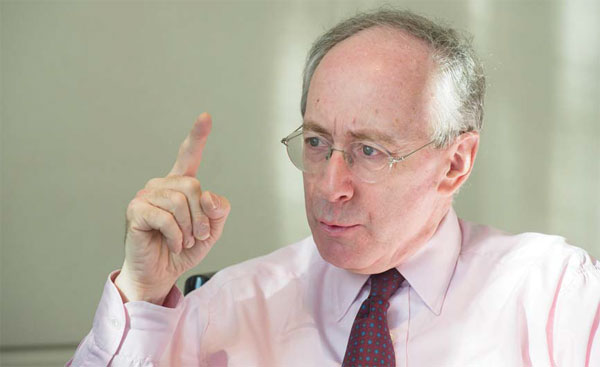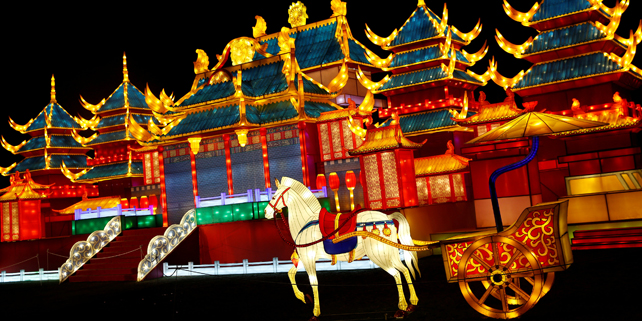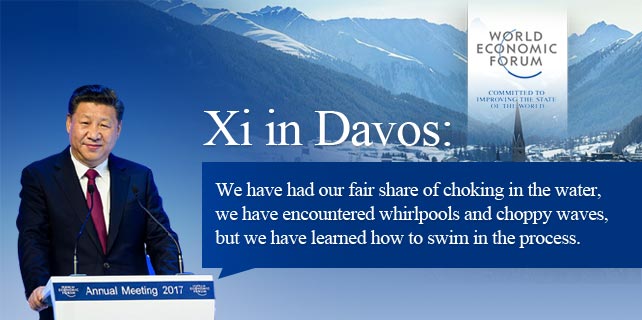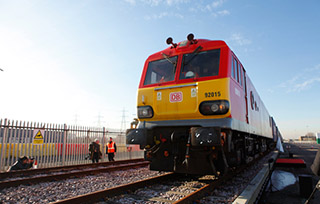'China's destiny was to lead the world'
Former British minister looks back on an eventful career - including the handover of Hong Kong
Sir Malcolm Rifkind, UK foreign secretary in the run-up to the Hong Kong handover 20 years ago this year, says he was going to choose a title for his autobiography that might have chimed with Chinese notions of longevity and respect for the elderly.
"My first draft title for the book, which my publishers were amused but not particularly impressed by, was My Early Life: The First 70 Years, which a Chinese audience would have appreciated."
"We are told the lifespan is going to be a lot more than it would have been once upon a time but this was seen as slightly frivolous."
|
Sir Malcolm Rifkind says leaving EU makes it more difficult for the Chinese to make decisions to invest in UK. Nick J.B. Moore / For China Daily |
The title eventually chosen was Power and Pragmatism, concepts that perhaps best sum up the career of the respected Scottish politician who served as a cabinet minister under former prime ministers Margaret Thatcher and John Major for 18 continuous years, a feat (shared with three of his ministerial colleagues) not achieved since the 1820s.
Rifkind, who was speaking in the lounge of the Intercontinental London Park Lane Hotel in Mayfair, says that pragmatic politicians differ from conviction politicians in that they don't feel guilty adapting their positions to circumstances.
"The pragmatist is much more relaxed about it. It doesn't mean the pragmatist has no convictions but if you are dealing with a problem and your previous conceptual or philosophical preference does not add up, it is OK to ask, what else would work?"
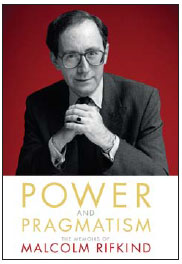
In the book- full of dry observations and witty anecdotes-he recounts the negotiations leading up to the handover of Hong Kong back to China on June 30, 1997. He was foreign secretary up until a month before, when the Conservatives suffered a landslide defeat at the hand of incoming Labour prime minister Tony Blair and he himself lost his Edinburgh Pentlands seat in Parliament, which he had held for 23 years.
He held his first meeting with Chinese foreign minister Qian Qichen in London in 1995 and when he visited Hong Kong and the Chinese mainland the following January he was given the nickname in the local press of "Li Wenjun", meaning "a cultured gentleman".
"Much of the hard work had already been done by Margaret Thatcher and Sir Geoffrey Howe (the former foreign secretary who had negotiated the 1984 Joint Declaration that paved the way for the handover). So I was just dealing with a number of unresolved issues, or new issues that had arisen. It was not too difficult," he says.
"Because we were approaching the moment of truth, obviously within Hong Kong itself there was increased nervousness about what the changeover would mean."
Rifkind makes the point that Beijing resuming control of Hong Kong was an unprecedented event.
"It was a unique problem which required a unique solutions so it is fair to say that Hong Kong remains governed by a different system to the rest of China," he says.
"The fundamental commitment to two systems in one country has been honored, in the sense you know."
The book charts his career from an up-and-coming Scottish advocate to being elected as a Member of Parliament when he was only in his late 20s.
Although gifted with an uncanny ability-honed in debates at university-to speak without notes, he is slightly bemused by his reputation as an intellectual, which he modestly says belies his actual academic achievements at school.
His first cabinet appointment came under Mrs Thatcher when he was made secretary of state for Scotland in 1986.
He believes Scottish public opinion remains firmly against independence and that, as a result, Scotland's First Minister Nicola Sturgeon will not trigger a second referendum, despite her rhetoric.

"Mrs Sturgeon is a very clever lady and she knows if she had one, she would almost certainly lose it."
Rifkind says he is not surprised that China has emerged as such a powerful economy over the past 40 years.
"It was always inevitable that would happen. You could not have a country the size of China with such a huge population, as well as its historical and cultural identity going back 2,000 years, where that was not the case," he says.
"China should always have been a great power. It should always have been the largest or second largest economy in the world."
He believes former Chinese leader Deng Xiaoping's reform and opening up agenda in the late 1970s proved the catalyst. "Chinese societies that have had experience of capitalism have been brilliantly successful. The economic reforms in China, starting with Deng Xiaoping, turned China into a capitalist system, albeit with communist characteristics."
One of the UK's foreign policy shifts in recent years was the heralding of a new "golden era" of relations with China, culminating in Chinese President Xi Jinping's state visit to London and Manchester in 2015. Some have suggested that new Prime Minister Theresa May is less willing than her predecessor David Cameron to fully embrace the world's second largest economy.
The new government, however, did finally give the go-ahead to Chinese investment in Hinkley Point C nuclear power station in the west of England, despite calling in the decision for review.
"If Mrs May's government had ended up rejecting Hinkley Point, that would have represented a sea change. That would have been fundamental - but she didn't," he says.
"There were a number of safeguards that were insisted upon but Chinese investment in the UK economy, and in particular its nuclear industry, is continuing. So to that degree there is continuity."
One of the major questions is whether the UK's referendum decision in June to leave the European Union will make it a less attractive place to invest.
Rifkind, who supported the UK remaining in the EU, says the country's uncertain status makes it more difficult for the Chinese and others to make investment decisions.
"Clearly any major companies from other parts of the world, who have a European market with a headquarters in the UK, ask themselves "what does this mean for us?"
He, however, believes the UK will prove itself to be resilient in the end.
"If you only have 65 million people and you are the 5th or 6th largest economy in the world, that is an enormous economic achievement. That strength didn't begin when we joined the EU and it doesn't disappear because we have left it."
Rifkind had to resign his seat before the 2015 General Election, having been caught up in a sting by the Channel 4 Dispatches program, where he was secretly filmed discussing a potential board position for a fictitious East European company.
Suggestions there was a conflict of interest were later dismissed as groundless by the Parliamentary Standards Commissioner.
The veteran politician, who at the time of this interview was about to address a conference on the Middle East, said he felt it was the right time to set the record straight on many aspects of his life by writing his autobiography.
"I'd always sort of assumed that in the dim and distant future I would write a book of this kind and it was about a year ago that I gradually had to come to terms with the fact that, as I was approaching 70, the dim and distant future had arrived."
andrewmoody@chinadaily.com.cn
(China Daily European Weekly 01/20/2017 page32)



